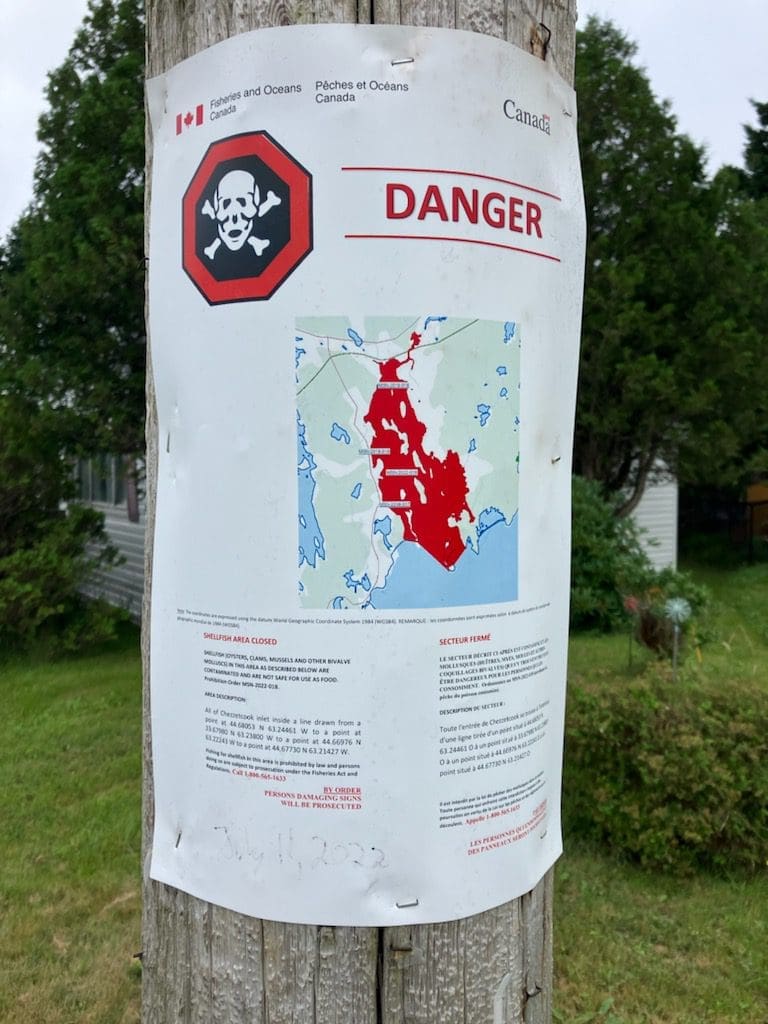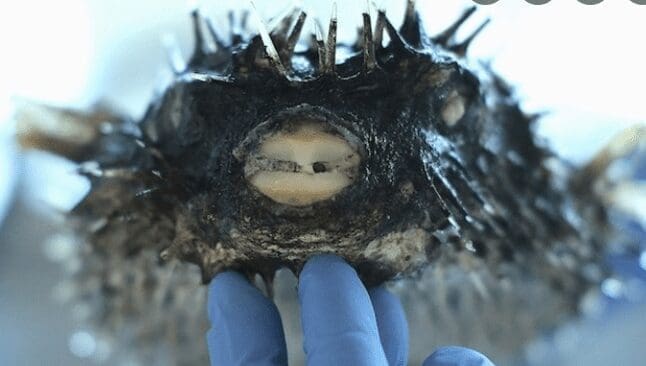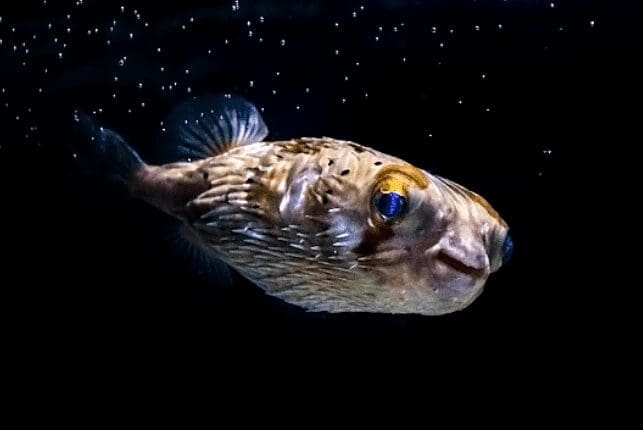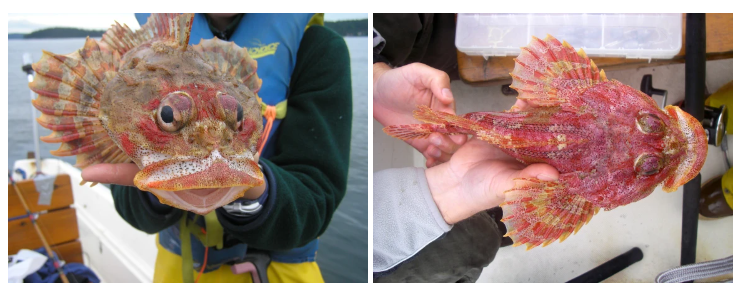If you’re wondering what the most dangerous animal is in the Canadian ocean or curious if anything in the Canadian ocean is poisonous, this article is for you. Not only is there a lot to choose from when it comes to deadly animals in Canada’s oceans, but the top things in the ocean that can kill you in Canada are also probably going to surprise you.
Deadly marine animals that are poisonous in Canada are abundant and often overlooked.
1: Shellfish
If you’ve ever tasted a fresh oyster or spent an evening collecting clams and cooking them at the beach, you know just how tasty shellfish can be. Be warned though, because consuming any bivalve shellfish, like mussels, oysters, and clams, can be deadly.
Because these shellfish are filter feeders when toxins are present in the water, these toxins can accumulate and concentrate in the shellfish. When this happens, consuming even a tiny amount can be deadly. The condition is called Paralytic Shellfish Poisoning, and it can cause serious, irreversible life-threatening neurological syndromes. There is no effective treatment for shellfish poisoning and symptoms include numbness and tingling, headache, muscle rigidity, seizure, respiratory failure, coma, and death.

2: Polar Bears
If you don’t see the polar bear as a marine animal, you will after reading further. Canadian polar bears may look somewhat like their southern neighbours that live in the forest and eat berries, but these similarities aren’t even skin deep. Polar Bears are marine mammals. They spend most of their time on the ocean or in the sea. They hunt seals and other marine mammals and have even been known to kill small whales. They have webbed feet, can swim over 100km, hold their breath for two minutes, and smell you from over 30km away. To top it off, polar bears have no natural predators, so if one sees you and it’s hungry, it will eat you.
3: Canadian Porcupine Fish
It’s official, the highly lethal porcupine fish has set up shop in Canadian waters and it looks like it’s here to stay: Spotted porcupine fish makes first known appearance in Canadian waters. This ocean fish is so deadly it can cause near-instant paralysis and asphyxiation thanks to the lethal tetrodotoxin it contains.


PRO TIP: Wondering if something in the ocean is poisonous? While there is no one sure-fire way to tell, and we’re not suggesting you use this technique, if it’s super beautiful or gruesome, it’s probably toxic.
4: Sculpin Fish
If you’ve spent any time Cod Jigging in Newfoundland, you’ve inevitably jigged a sculpin or two in the process. These fish have a distinct ultra-ugly appearance, similar to the deadly stone fish found in the tropics, and contain poison in the spines. You can eat them (we can vouch for this) but preparing a sculpin is a bit more involved because you need to avoid and remove the poisoned spines, which you want to be cautious around.
If you ask any of the local old-timer fishermen in Newfoundland, most of them can tell you what it feels like to be stung and poisoned by a sculpin. Many of these burly fishermen describe it as excruciating pain. Others admit to crying. But just how poisonous is the toxin in a sculpin? Well, as it turns out, it’s pretty toxic indeed.
Sculpin fish contain cardiac glycosides that can do all sorts of crazy stuff to your heart, like increase or decrease your cardiac output, which can ultimately kill you.

5: Killer Whales
When the word killer is in the animal’s name, you can bet they’re not a pushover. Often when we think about dangerous ocean animals, the shark comes to mind. Sharks are amazing animals, and some of the only creatures around that have survived multiple mass extinction events, but they have nothing on the Killer Whale, also known as the Orca Whale. Killer Whales are true apex predators.
This means they have no natural predators, similar to the Canadian Polar Bear. Unlike Polar Bears though, which are mostly solitary animals, Killer Whales hunt in packs, just like wolves, increasing their danger and killing power. Killer Whales have giant teeth, are at the top of the food chain, and eat everything from salmon to whales. Killer whales will kill and eat anything, including you.
6: Portuguese Man O’ War
Arguably the most dangerous animal in Canadian coastal waters, the Portuguese man o’ war keeps washing up on the shores of Nova Scotia and Newfoundland. People describe the sting of the Portuguese man o’ war, also known as Physalia, as “total pain” and “being cauterized by a hot knife”. The other name for the Portuguese Man O’ War is “Floating Terror” which offers caution in the name alone.
The tentacles of the Portuguese Man O’ War contain nematocysts filled with barbs containing a cardiotoxic poison. All Physalia species possess significant cardiotoxicity to man and are almost always lethal to lower animals. Want to know more details on how Portuguese man o’ war toxicity works? Spend a few moments geeking out on this peer-reviewed journal article on How the Portuguese Man O’ War kills you.

Have you had an encounter with one of these deadly Canadian ocean creatures? Let us know about your harrowing experience in the comments below.




